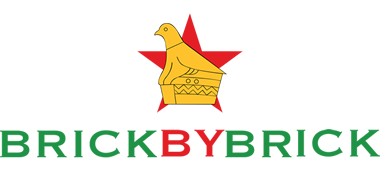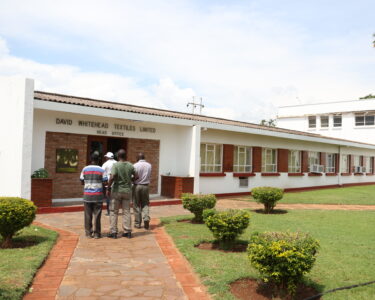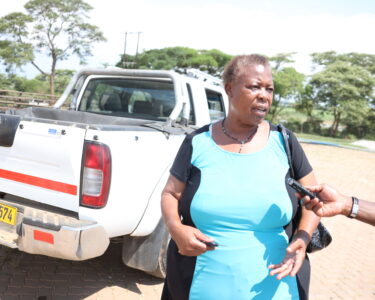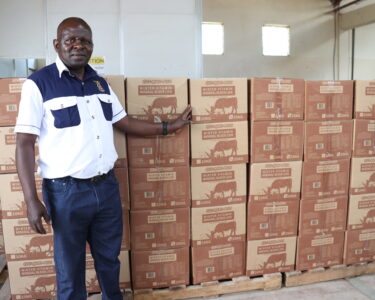Mashonaland West Province (otherwise known as Mash Best) may be ruled from its central city of Chinhoyi, the provincial capital, but it is Chegutu and Kadoma, 34 km apart in the south of the province, that have become the cynosure of all eyes, thanks to the efforts of the Second Republic. The glory years of Chegutu (particularly) are on the way back. Baffour Ankomah reports.
Chegutu is known for gold. It is also known for agriculture, particularly maize, cotton and citrus. It is known for textiles and the cotton industry generally. In its glory years, Chegutu hummed with activity when these industries were at their peak. Somehow these profitable industries died, and Chegutu, known in colonial days as Hartley, became a ghost town.
The colonialists in fact had a cheek. They named the town after Henry Hartley who discovered gold in the vicinity of Chegutu. Colonial history shows that Chegutu was founded in 1891 on the Mapfure River (which on colonial tongues became the Umfuli River). The colonials flocked to Chegutu as two gold mines awkwardly named “Butterfly” and “Giant” were established there.
In 1900, Chegutu (or Hartley to be precise), was moved 29 km west to its current location. A year later, the railway line from the capital, the then Salisbury (now Harare) reached Hartley, which was proclaimed a village in 1903 and a town in 1942 when a town-management board was constituted. Hartley gained a Town Council status in 1968 and a municipality status in 1974.
Now on the main road and railway line from Harare to Bulawayo, Chegutu became the service centre for a large agricultural district that farmed maize, cotton, tobacco, citrus, wheat, cattle, castor, beans and other crops. It was also home to the country’s largest textile-weaving industry (the famous David Whitehead Textiles). Nearby were extensive deposits of limestone but it was gold, nickel and chrome that the colonials put their teeth into.
As agriculture also prospered, both the Cotton Marketing Board and the Grain Marketing Board established depots in Chegutu. By 1984, a total of 16 grain silos had been built in the buzzing town for the bulk storage and delivery of grain, each able to hold 5,000 tons of grain.
Then cotton ginning arrived, which saw America’s largest privately-held corporation by revenue, Cargill (it had a humungous US$114.7 billion in its coffers in 2018) moving to the suburbs of Chegutu. A global food corporation, Cargill did not only deal in cotton ginning in Chegutu, but also in other crops and the agricultural value chain generally.
Yet, somehow (and the emphasis is on “somehow”), despite all these big and deep-pocketed industries, Chegutu, which changed its name from Hartley to its rightful African name in 1982, two years after Zimbabwe’s independence, became a ghost town as all the industries died.
How this was possible is a story for another day. For now, let it be sufficient to know that Chegutu’s glory days are returning, slowly but surely, thanks in the main to the Second Republic’s efforts at creating an enabling environment for business to thrive in the country.
Those efforts have since attracted a company called Agri Value Chain (AVC), a subsidiary of the Indian-owned ETG consortium, which has investments in Zimbabwe and elsewhere in Africa. ETG stands for Export Trading Group. In Zimbabwe, it also owns one of the largest cooking oil businesses in the country, Pure Oil Industries based in Harare, which manufactures the famous Zimgold brand.
The other subsidiaries of ETG is Parrogate (a group of companies with operations in Zimbabwe, Zambia and Malawi) and Carrera Ventures. The ETG consortium employs over 3,000 workers in Zimbabwe. ETG expanded its portfolio of companies in 2019 when it acquired the almost defunct textile giant David Whitehead, and again added PP Hospital to the portfolio. PP stands for Pradip Patel, the co-founder of the ETG Group.
AVC to the rescue
AVC took over Cargill’s massive ginning plant at Chegutu in 2017, three years after the American giant had shut down its cotton business in Chegutu in October 2014, complaining of “challenges” beyond its control. The Chegutu ginnery is one of the largest sites of cotton ginning in Southern Africa.
Cargill had more than 20,000 farmers across Zimbabwe under its cotton contract scheme, but on 14 October 2014, its corporate affairs manager, Corinne Holtshausen, issued a statement saying: “Our ginnery at Chegutu will cease operations and will be mothballed. In recent years Cargill has been affected by changes in the cotton sector driven by shrinking cotton crops that have resulted in over-capacity among ginners, shrinking margins, high levels of farmers’ credit defaults and side marketing [ie, farmers selling to competitors and not honouring contracts]. These have impacted the company’s ability to operate profitably and resulted in substantial losses. It has become clear that we cannot continue to operate with our current model.”
With Cargill out, AVC marched ahead unafraid, and with tenacity and purpose has now dramatically transformed the business after acquiring 4 more ginneries across the country – at Sanyanti, Checheche, Rushinga, and Glendale. The company’s five ginneries now have a daily combined capacity of 1,200 tonnes.
For the Mashonaland West Province, and Chegutu in particular, AVC’s success has translated into the employment of 850 people at peak season, and 400 people off-season. The employees are drawn from the local community. According to Zacharia Mupachike, AVC’s supply chain manager, the workers are engaged not based on their educational level, but their ability to do the work. And AVC employs very young people.
Asked about the philosophy behind employing young people, Mupachike who prefers to be called Zach, said: “Young people want to do things smarter, cleaner. They work smarter than hard. In terms of innovation and technology, they are smarter. You cannot be ploughing using a hoe when you can mechanise that hoe. That’s young people for you.”
So “old” people, please don’t apply. Over 30% of the workers are women. AVC also accepts a lot of interns from universities.
Refineries
Even better, AVC has an ambitious plan for Chegutu. Besides the cotton ginnery, the company is bringing the manufacture of cooking oil from sunflower and palm nuts to Chegutu.
It is also about to finish a semi-automated brick factory (the first of its kind in the country) and a quarry in Chegutu. Also on the cards is a 40-bed state-of-the-art hospital to be built 500 metres or so from the ginnery plant. And above all those projects, AVC has pledged to revive the textile manufacturing giant that once brought so much joy to Chegutu and its environs, David Whitehead Textiles.
But first, AVC has been concentrating on refining cooking oil in Chegutu. Hitherto, as Phanuel Moyo, AVC’s plant responsible manager, explained, “we have been sending all our crude for refining, bottling and packaging to our sister company in Harare, Zimgold. Now we will be finishing the product here at Chegutu, Mash West. We are also going to have a bottling plant and packaging in Chegutu.”
The sunflower processing plant has been finished and awaiting commissioning, while the palm nut processing plant, the first one in Zimbabwe, will also be commissioned this year.
The chimney and tanks for these plants were manufactured inhouse by AVC’s technicians.
Rodreck Musiyiwa, Zimgold’s chief operating officer, told Brick by Brick magazine that the ETG Group also has a “serious cotton value chain. We have ginneries across the country which take cotton from farmers through partnering with cotton companies, and gin it into lint.
“The lint used to be exported, but we are happy to say that we invested further down in the value chain and incorporated David Whitehead, which will now take the lint from our ginneries, spin it in our Kadoma spinning factory to produce yarn and the yarn then taken to David Whitehead premises in Chegutu to weave and produce fabric. So our operations, as far as cotton is concerned, are integrated from end to end, starting from the farmer to the cloth.”
To ensure continuous raw material availability for the cooking oil business, Musiyiwa said 3 ETG subsidiaries – AVC, Parrogate, and Pure Oil Industries – teamed up this year to give free sunflower seed to farmers nationwide who would grow them and sell their produce back to the ETG Group. The programme has so far attracted 57,000 farmers on 700,000 hectares of land.
“The take-up of the seed distribution programme has been very impressive, we are happy about it,” Musiyiwa said. “Now we are sitting on over 700,000 hectares to feed our own processing plants.”
According to him, Zimbabwe currently relies mostly on imports of oil seeds or crude for the cooking oil industry. “We have about 7 or 8 cooking oil companies in the country,” Musiyiwa explained, “so imagine the vast amount of foreign exchange we spend as a country on these imports. It is probably US$15m to US$20m a month, and all this going to farmers in foreign countries.
“If this money could be channeled to Zimbabwe farmers, it will be a game changer. It will be transformative and will uplift our farmers, which will uplift the country, because remember we are agro-based, 60% of our industry is based on agriculture; so once our farmers are uplifted, they will become a powerful market that will add value in terms of revenue to the economy. So our vision at the ETG Group is to support the local value chain by going local content in every aspect of the value chain.”
Asked if giving the seeds for free was a viable project, Musiyiwa replied: “In the first year, we are looking at the economy and CSR [corporate social responsibility]. So we are not looking so much to make a return but we want the farmer to make a return. They have not done this in 10 years, but the free seed entices them. If they grow the seeds and sell sunflower back to us and make money in the first year, come next season they will be able to buy their own seed and farm it.
“On our part, we are assuring ourselves of the supply side of our raw material. In all this, we need feed stock in our plants, and Covid-19 taught us a lesson that the supply chain from other countries can be risky because we all saw what happened when Covid-19 came – all countries closed their borders and we were starved of raw materials. So we are saying no, no, we must be self-assured when it comes to raw materials. And the free seed prgoramme is one way to do it.
“So yes, in our first year we know for the farmer it is very viable, and once it is viable any farmer would want to farm sunflower because it is profitable. Come next season, they will do it on their own and continue the cycle. They know that there is an assured market, we have buying points all over the country, we will buy it on competitive pricing and in a competitive currency.”
Brick factory, the first of its kind
AVC’s good news does not end at the free seed programme. The company has also established a quarry and a brand new semi-automated brick factory at Chegutu, which will produce 5,000 bricks a day. Until now, the nearest brick factory in the area was in Chinhoyi (93 km away) and Norton (73 km away). So AVC’s brick factory could not have been located at a better place. The factory will be run by ETG’s other subsidiary, Carrera Ventures.
According to Phanuel Moyo, AVC’s plant responsible manager, “the whole essence of the brick plant is the realisation that from Chegutu to Gweru (170 km), there is no brick factory or quarry plant, and in order to support the building industry and other construction projects in the area, including the dualisation of the Bulawayo road which has already started, we are going to be a support act by providing the raw materials like quarry and other stuff.”
When Brick by Brick visited in late October 2022, the quarry, located a mere 500 metres away from AVC’s ginnery and oil seed processing plants, was completed. The stones for the quarry will be extracted 12 km away, while the raw material for the brick factory will be extracted 8 km away.
“For this plant,” Moyo said, “because it is semi-automatic, we are going to employ less than 100 people. Outside the plant, it should be another 200 workers or so. The bricks go on a trolley into a kiln, and from the kiln they go for storage. There is no drying in the sun. We will be using coal for the kilns, and human intervention will be minimal.”
He went on: “Brick factories in the country are more manual. They mould the bricks and put them out to dry in the sun. It takes 7 days to dry, before they fire them in an oven. With ours here, the automated trolley’s take the moulded bricks into the kiln, it dries them inside the kiln, and they come out as completed bricks. You don’t find this anywhere in this country – from sand unto the truck as bricks.”
Zach added: “The bricks will leave Chegutu for Harare, Bulawayo, and other places. It means more money will be made in Chegutu for the community to benefit; and more shopping malls elsewhere in the country will be built from bricks from Chegutu. Which means the value of land in Chegutu will increase, and the truck hauling business in the country will benefit and expand as there will be more business for the trucks.”
In all, the brick factory took one year to build – from September 2021 to September 2022 – when the Minister of State for Mashonaland West Province, Mary Mliswa, read the riot act to the Chegutu municipality to approve AVC’s land application which had been delayed for over 2 years.
Minister Mliswa insisted that Mash Best as a province needed investment and it was bad practice for the Chegutu municipality to drag its feet for 2 years and frustrate a much-needed investment like a brick factory that would hugely benefit Chegutu and the areas far beyond. “We need investments in this province, give them the land, let them start work,” Minister Mliswa reportedly told the Chegutu City Council. And thank God, they obeyed. That was in September 2021.
Meanwhile AVC’s machinery for the brick factory had been lying idle and gathering dust for over 2 years. As Moyo dramatically put it: “We came back from the Minister of State’s office in September and started building this factory. See what a year has brought.”
Hospital for the community
The ETG Group has also committed itself to building a 40-bed state-of-the-art hospital in Chegutu, some 500 meters from AVC’s ginnery and cooking oil plants. To be called the “PP Hospital”, it will cost over US$1.5m to construct. Zach told Brick by Brick that “the company is building the hospital for the community, and as it will be a state-of-the-art hospital, there will no need for patients to go to India or South Africa for medical emergencies”.
By acquiring David Whitehead, AVC has already been entrusted with the textile giant’s clinic, “but it is very small, so we are building this big hospital for the community”, Zach repeated.
A total of 9.9 hectares of land has been secured, out of which 4.5 hectares will be used to build the hospital, and the rest used to construct an 8.5 MW solar plant to feed the AVC plants and David Whitehead across the fence.
Already, the hospital construction has been delayed for over 2 years even though the needed equipment for the hospital has been imported and sitting in containers in Chegutu for the past 2 years (can you believe it?). The delay has happened because AVC’s application for a Private Voluntary Organisation (PVO) status for the hospital has not been granted by the Ministry of Public Service, Labour and Social Welfare. As happens frequently, the ministry is taking its sweet time to deal with the application while thousands and thousands of people in Chegutu and beyond need a good hospital to attend to their medical needs.
“So we want to appeal to the government to assist us in this PVO application,” Zach said. “We are locals wanting to build something for the locals. The funds for building the hospital is there, the equipment is also here, some other equipment needs to come though, and our challenge is on import duties.
“There are some things that a company cannot get a waiver for in terms of duties, and this is where we are saying please help us. We don’t want to go to the government with a begging bowl every time we need to import something for the hospital, but we are saying we’ve got the money for the hospital, the designs have been done by one of the top local architects, the President has done the groundbreaking ceremony, so please help us with the PVO whose main agenda is to ensure that we give back to the community through projects.
“This hospital needs to self-fund itself not just through admissions but also having programmes such as gardens. You have noticed that throughout the country there is a drive for livestock being given to farmers, there is borehole drilling, there are gardens being done, and fishponds, etc. So we would want those things also to be done here at Chegutu, and the hospital would get its funding from those projects. We would bring lecturers here to teach the youths how to farm fish, to grow sunflower and soya beans, so that the gardens would be funding themselves.
“As AVC, we will be bringing in the equipment to help these projects, but our challenge is import duties. You buy something for US$1,000 abroad but the duty might be 60% when it arrives here. So our will to do good becomes hindered. Look at the kids running there at the David Whitehead primary school. If one of them has a heart condition, his parents might not have the money to take him to India or South Africa, but we will have the hospital facilities here to treat the child locally. So this is our main drive.”
David Whitehead
The best of all the AVC projects is the acquisition of the famous but afflicted textile giant, David Whitehead, which lies next door to the AVC’s plants in Chegutu. The ETG Group has promised to sink US$20m into the revival of the troubled behemoth (see story on page …)
David Whitehead, founded in the 1950s, used to employ 5,000 people at its peak. Headquartered in Chegutu, the textile giant has a spinning factory in nearby Kadoma and other operations in Kwekwe. In its glory days, it controlled not only the fabric market in Zimbabwe but the whole of the SADC region, and supplied material for army uniforms for most member states of SADC, including the Zimbabwe Defence Forces.
The ETG Group took over David Whitehead’s operations in Kadoma and Chegutu in 2019 and relaunched the company on 5 October 2022 when President Emmerson Mnangagwa, deputised by the Minister of Industry and Commerce Sekai Nzenza, performed the joint commissioning of the PP Hospital, brick factory, and David Whitehead on the same day.
At the occasion, the ETG Parrogate Group’s CEO and chairman, Pradyumn Kumar Ganediwal, lamented the fact that 95% of the fabric requirements of Zimbabwe was being imported, and because of the huge financial resources going into the importation of fabric, “the David Whitehead project will be for import substitution and value-addition to revive the entire textile industry value chain. The major focus is to be a supplier of raw materials to the local clothing companies and create jobs.”
Ganediwal revealed that the revamped David Whitehead will produce 10 million metres of fabric annually.
Primary School
Another of AVC’s major projects “to benefit the community” is the revamping of David Whitehead’s primary school, which currently has 1,080 pupils on its books. Moyo told Brick by Brick that “the school is currently running independently but our founder and chairman, Mr PK, has taken it upon himself to build another block of classrooms, a laboratory and equip it, and an assembly hall. All these projects are going to benefit from bricks coming from our brick factory.”
Who says the Second Republic has been sleeping?





